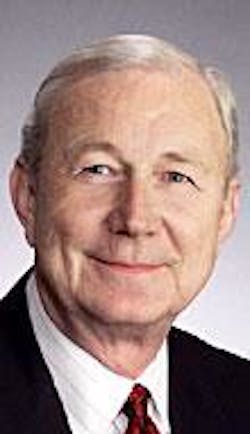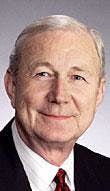Comment -The time has come to certify reserves evaluators
Now is the time for the oil and natural gas industry to take decisive steps to restore a loss of public confidence. Recently, our industry fell out of favor after several companies made announcements of major reserves writedowns.
This continues an erosion of credibility that started with Enron Corp.—even though it was not an exploration and production company—as well as other corporate scandals unrelated to reserves. These gave rise to a high-accountability environment with the passage of corporate responsibility laws, including the Sarbanes-Oxley Act of 2002.
Then came the reserves impairments during the first quarter. Nervous institutional investors, credit rating agencies, and others now are asking, "When will the other shoe fall? Who's next?" They are demanding higher standards throughout the energy industry, particularly from the oil and gas industry.
To strengthen our case, I urge industry to establish an accreditation program to independently certify petroleum geologists and engineers in the practice of reserves estimation and evaluation. Let's begin laying some groundwork to establish or nominate an independent professional organization or group of organizations to undertake this task and bear the responsibility of administering examinations and issuing certifications.
Taking the lead
This is an opportunity for us, as industry professionals in reserves estimations and evaluations, to take the lead before the government does. In fact, we need to act now before the US Congress or another authority orders us to do so. As professional reserves evaluators, we have to take the necessary, difficult steps to upgrade and demonstrate our competencies as professionals or suffer the consequences of inaction.
The notion that "perception is reality" is true in the case of investor perception of our industry. Reserves estimation skills among otherwise highly qualified geologists and engineers are significantly lacking.
I have observed this over several years at the Society of Petroleum Engineers' (SPE) applied technology workshops and during the last 4 years at the Society of Petroleum Evaluation Engineers (SPEE) forum with the US Securities and Exchange Commission. It has become all too evident that there are shortcomings in reserves evaluators' abilities and understanding.
This is not to disparage the fine technical skills of the reservoir evaluation professionals in our business. Nor am I suggesting that any area of industry or any particular company currently falls short in having qualified reserves evaluators on staff. I do suggest, however, that the industry, including investors, will be well served by knowing that these evaluators, whether employed by E&P companies or independent consultants, have met specific elevated standards and are fully qualified to prepare reliable reserves estimates.
Advanced training
Technical skills are not the only determinant in whether, for instance, an evaluator appropriately interprets and applies an SEC reserves definition. The evaluator must have an understanding of the commercial and legal considerations therein. Few, if any, scientific curricula or textbooks contain this information. However, the certification agency could amass this information and educate our profession in commercial as well as technical matters.
Certifications would amplify additional training beyond basic reservoir engineering skills and experience. The material would be "principle-based," not "cookbook" training in reserves evaluations.
We could rely on SPE to provide input, particularly from the "Standards Pertaining to the Estimating and Auditing of Petroleum Reserves and Reserves Information," an SPE board-approved document. I have explored this issue in writing an SPE paper (No. 84143), "Current Applications of 'The Standards Pertaining to the Estimation and Auditing of Oil and Gas Reserves Information' To Meet the Objectives of the Sarbanes-Oxley Act of 2002."
I am not recommending mandatory certification or government controls of any kind. If they choose to do so, companies would be the driving force for certification through their internal policies requiring accreditation of their reserves evaluators over a specified time period.
Qualified engineers or geologists certified as specialists would be recognized by the sponsoring organization or organizations as having advanced skill levels as well as substantial experience in established reserves evaluation methods.
The testing agency would have to ensure that recognition as a certified specialist is meaningful and reliable. The evaluator would qualify for accreditation by virtue of education and special training, peer recommendations, experience and job history, knowledge, and scoring on certification exams. The program would offer petroleum geology and petroleum engineering options.
I have contacted SPEE and the American Association of Petroleum Geologists (AAPG) to begin a discussion of this initiative. We would need certification by a recognized professional organization or organizations. Reserves issues affect a relatively small number within SPE so the society might not have an interest in accreditation of evaluators. However, AAPG has experience in accreditation. It certifies petroleum geologists. SPEE also is a logical choice because its members are involved in reserves estimates and the society has already established high standards for membership.
Certification process
The certification process could be similar to that seen in board certifications for highly specialized fields, such as lawyers and physicians. The exam would test for competency in the technical aspects of evaluations as well as for knowledge of regulatory reserves reporting requirements and reserves definitions of various government agencies worldwide, including the SEC.
The examination, perhaps taken as an "open book" test, would assure that candidates are able to demonstrate knowledge of "best practices" in reserves estimation. It also would test for competency in relevant commercial software.
Standards of ethics also would be stressed. Perhaps, the certifying organization would ask for attestations as to character, qualifications, and other attributes of the candidate through letters of recommendation from respected individuals.
To maintain the certification, geologists and engineers would have to fulfill requirements for continuous education, including ethics training, on an annual basis. The ethics training is particularly significant considering the different worldwide social and business customs and cultures.
Integrated, multidisciplinary reserves evaluations require interaction between geoscientists and engineers. For that reason, all applicants would be required to exhibit competencies in engineering and geoscience, but with much more detailed knowledge for their respective areas, whether geological or engineering.
The certification program would require board direction, staff administration, and constant monitoring to handle grievance issues and potential "decertification" with cause. The program, including the exams, could be based on the worldwide web, which would allow access by producers and consultants from virtually anywhere in the world.
I strongly urge that no one be shielded under a "grandfather clause" built into the program. Everyone must meet the same standards. I am not trying to be presumptuous in personally establishing standards for certification. My effort is only an attempt to encourage debate and enthusiasm to begin such a process.
To begin this dialogue, I am interested in forming an exploratory committee with representation from SPEE, AAPG, producers, bankers, regulators, and others. I am interested in receiving comments and criticism from any interested parties.
The author
Ronald Harrell is chairman and CEO of Ryder Scott Co. LP. He joined the consulting firm as a reservoir engineer in 1968, became vice-president in 1970, director in 1980, and president in 1998. Harrell has managed reservoir engineering and geological studies worldwide, including property evaluations for acquisitions and divestitures, financing, reservoir management, gas supply analysis, gas storage studies, and litigation support. Expert testimony activities include various appearances before international, federal, and state agencies in court trials and arbitration hearings. He graduated magna cum laude with a BS degree in petroleum engineering from Louisiana Tech University. At various national and international annual conferences, Harrell has delivered presentations on oil and gas appraisals, reserves definitions, and classifications and differences in reserves estimates. He has led the way in exploring emerging issues on reserve reporting requirements with the US Securities and Exchange Commission. Harrell is past chairman of the Society of Petroleum Engineers Oil and Gas Reserves Committee and currently sits on that committee as an observer. He recently chaired a Society of Petroleum Evaluation Engineers forum that addressed SEC interpretive positions on petroleum reserves definitions. His e-mail is [email protected].

